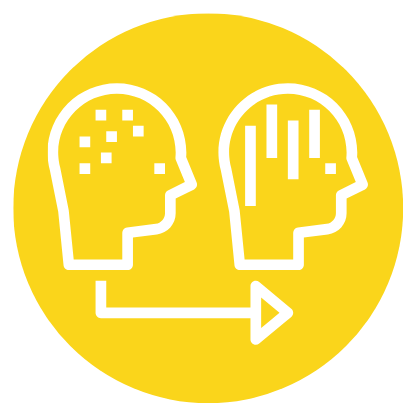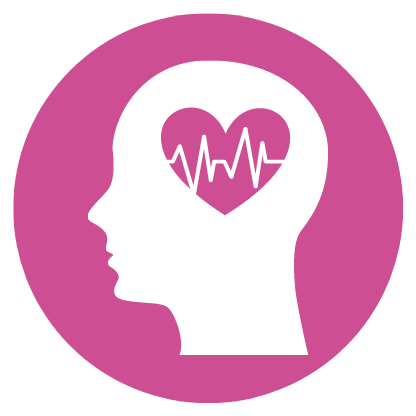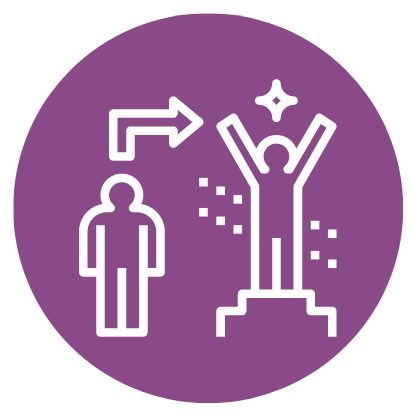How To Build Your Mental Strength | HBR
Reference: Harvard Business Review. (2020, August 12). How to Build Your Mental Strength [Video]. YouTube.
We Make Your Education Count

Get the Credit You Deserve and Become the Most Attractive Job Candidate by Earning and Posting A+ Badges to Your Linkedin Profile.
Sign Up to Get Started at Accredicity
|
Discover how to develop your mental strength and reach your greatest potential with simple exercises and choices. In this Harvard Business Review video, Amy Morin explains how to build mental strength. She clarifies the difference between being mentally strong and acting tough, and discusses how to tackle anxiety, challenge yourself, and build mental muscle. Morin emphasizes that mental strength is a continuum, and that everyone possesses it to some degree. She encourages viewers to recognize that failure is always a possibility, but they are strong enough to handle it if it happens. Finally, she suggests that people take small steps to challenge themselves and recognize that they are more capable than they think. Learning Outline1. Mental strength is like physical strength; it is on a continuum and we can always choose to become stronger. Instructional ContentMental strength is a powerful asset that can help us reach our fullest potential in life. While physical strength can be easily measured and quantified, mental strength is more complex and can take effort to cultivate. In this video, Amy Morin explains how we can build our mental strength and why it’s important. One of the most important distinctions Morin makes is between being mentally strong and “acting tough.” She explains that when we’re mentally strong, we recognize that failure is a possibility and prepare ourselves to handle it if it happens. Instead of thinking positively, we should strive for realistic thinking, acknowledging our strengths and accepting potential failure. Morin also explains how anxiety can get in the way of our mental strength. She explains that anxiety is designed to keep us safe, but in today’s world, it can be triggered by social or financial risks, rather than physical danger. To build mental strength, we need to recognize that we’re not in danger and use that knowledge to push ourselves to take risks. Finally, Morin emphasizes that building mental strength is about challenging ourselves. We must recognize what is uncomfortable for us and take small steps to push ourselves outside of our comfort zone. With practice, we can train our brains to see ourselves as more capable and competent, and ultimately become mentally strong. Mental strength is an invaluable asset that can help us reach our goals and reach our fullest potential. By watching this video, we can learn how to build our mental strength in a tangible, practical way. By recognizing the differences between being mentally strong and “acting tough,” taking risks even when we feel anxious, and challenging ourselves, we can build mental strength and reap its rewards in our lives. Cognition
|

Building mental strength is like building physical strength: it takes practice, effort and dedication. It's all about the choices you make and the exercises you do. Acting tough isn't the same as being mentally strong. It's about recognizing that failure might happen but you're strong enough to handle it. Anxiety is like an alarm bell to keep us safe, but it can be confusing in today's world when it's not a physical danger. To build mental strength, you have to push yourself out of your comfort zone and challenge yourself. You have to recognize that you're stronger than you think and keep practicing until it doesn't feel so scary anymore. Video Quotes"It's all about the choices you make, the exercises you do, and the way that you choose to live your life. You know it's a problem when you feel like you're not reaching your greatest potential." - Amy Morin "So whether you're going to ask for a promotion or you're going to apply for a new job, it's not about positive thinking and thinking this is definitely going to turn out right, maybe it's about realistic thinking and recognizing this may not work, but to also remind yourself you're strong enough to handle it." - Amy Morin "The more that you keep challenging yourself at a moderate pace, the more that you realize you're stronger than you think, and you'll actually train your brain to see yourself as more capable and more competent than you think that you are." - Amy Morin Related Quotes"We all have the capacity to develop mental strength, regardless of our circumstances." - Dr. Jeffery S. Nevid, Professor of Psychology at St. John's University "Mental strength isn't necessarily something that you're born with. It's something that you can build over time." - Dr. Jeffery S. Nevid, Professor of Psychology at St. John's University "Mental strength is not only about being able to push through difficult situations; it's also about having the skills to manage their emotions." - Dr. Jeffery S. Nevid, Professor of Psychology at St. John's University Competencies1. Cognitive Flexibility Learning Outcomes1. Explain the differences between being mentally strong and acting tough (Knowledge) Sample Answers1. I have learned that mental strength is not a binary concept, it is on a continuum and there is always room to become stronger. I have learned that it is important to recognize that failure can happen, but to remind myself that I am strong enough to handle it. 2. I have learned that there is a difference between being mentally strong and acting tough. Mentally strong people recognize that failure may happen, but they are capable of dealing with it. 3. I have also learned that it is important to challenge yourself. It is important to recognize what is uncomfortable and take steps to do it. For example, it might be asking for a raise or striking up a conversation at a networking event. It is also important to recognize that physical danger is different than social rejection and small failures. Amy MorinAmy Morin is a psychotherapist, keynote speaker and the author of the international bestseller "13 Things Mentally Strong People Don't Do." She is a Forbes contributor and an adjunct professor at Northeastern University. She has been featured in numerous publications, including The Wall Street Journal, TIME, and Psychology Today. She is an expert on mental strength because she has been helping people for over a decade to build the psychological muscles that empower them to reach their goals and overcome their challenges. She is also the founder of the online mental strength training program, MentallyStrong.com. She is associated with the organization and business Authority Magazine, which can be found at Amy Morin. Learning DesignThese competencies are important for learners to develop in order to navigate through complex and ever-changing environments. Cognitive flexibility is essential for problem solving and decision making, and is required for individuals to be able to adjust their thought processes in order to adapt to different situations. Mental well-being is key to both physical and psychological health, and is especially important in today's uncertain times. Adaptability and resilience are also essential in today's world, as they allow individuals to persevere and thrive in the face of adversity. AssessmentQ: According to Amy Morin, what is the difference between mental strength and acting tough? Questions1. What is mental strength and how is it different from just acting tough? KeywordsMental Strength, Mental Weakness, Social Rejection, Building Mental Strength, Networking Event, "People Pleaser", Physical Danger, False Alarms, Ask for Promotion, Asking for Raise, Worst Case Scenario Facts1. Mental strength is akin to physical strength, and can be improved through mindful choices. Trends1. Start a Mental Strength Journal: Create a journal to track and document your journey in building your mental strength. Record the challenges you've faced, the strategies and tactics you've used, and how you've grown and improved over time. 2. Create a Mental Strength Playbook: Develop a playbook of go-to strategies, tactics, and exercises that you can use to build your mental strength and confidence. 3. Leverage Social Support: Connect with an accountability partner or join a group or community of people who share the same goals and objectives for building mental strength. 4. Practice Mindful Meditation: Incorporate mindfulness and meditation into your daily routine to help you build mental strength and manage your anxiety. SourceThis learning instructional guidance was formulated using the GPT-3 language model created by OpenAI. ShareBe stronger than your excuses! Mental strength isn't about being tough, it's about being realistic and recognizing that failure might happen but you're strong enough to handle it. Step out of your comfort zone and challenge yourself to grow. #mentalstrength #growthmindset 😊 @Accredicity |








 117 Creds - Cognition
117 Creds - Cognition



